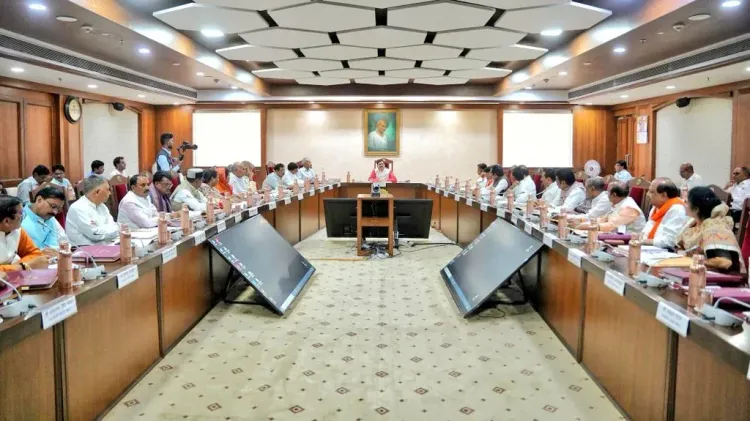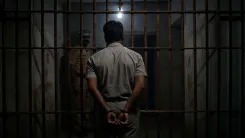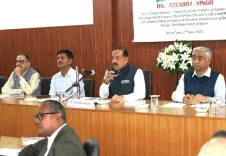Will MP Government Employees Finally Get Promotions After 9 Years?

Synopsis
Key Takeaways
- Promotion Policy: New framework approved after 9-year freeze.
- Job Creation: Policy expected to generate 200,000 vacancies.
- Employee Impact: Approximately 400,000 employees to benefit.
- Reservation Measures: 20% for Scheduled Tribes, 16% for Scheduled Castes.
- Merit and Seniority: New promotion mechanism based on performance evaluations.
Bhopal, June 17 (NationPress) After a prolonged nine-year suspension, the Cabinet of Madhya Pradesh has sanctioned a long-awaited promotion policy for government employees, aimed at creating a plethora of job vacancies.
Urban Development Minister Kailash Vijayvargiya mentioned that this new policy is projected to generate at least 200,000 vacancies across various sectors. This decision is expected to positively impact around 400,000 employees, marking a substantial change in the administrative landscape of the state.
The newly introduced policy establishes a systematic promotion framework for state service officers. A merit list will be compiled based on seniority, ensuring prompt advancement opportunities and eliminating extended delays in career progression, which is anticipated to enhance morale and boost administrative efficiency.
This policy also includes reservation measures, allocating 20 percent of promotional positions for Scheduled Tribes and 16 percent for Scheduled Castes, ensuring fair representation while upholding procedural integrity.
Promotions had been on hold for nearly nine years due to a legal challenge regarding reservation in promotions, which was under review by the Supreme Court. During this time, over 150,000 employees retired, including close to 100,000 who were eligible for advancement. On average, around 3,000 employees retire each month in the state.
The government had submitted a Special Leave Petition, which effectively suspended the promotion process amid ongoing litigation.
Minister Vijayvargiya indicated that the legal department meticulously assessed all judicial avenues before finalizing the policy. The Cabinet will now decide on the effective date for initiating promotions.
The majority of state employees are situated in the school education and police sectors, with nearly 500,000 personnel categorized under Class-III.
The new framework aims to reconcile the interests of both reserved and unreserved categories.
For Class-1 officers, promotions will hinge on a blend of merit and seniority, while Class-2 and lower-level positions will follow a merit-cum-seniority approach. Eligibility will also be influenced by performance evaluations, requiring employees to have received at least four 'A+' ratings in the past seven years or one 'Outstanding' rating in the last two years.
Employees with incomplete records due to their own negligence will be disqualified from the promotion process. The policy will not retroactively affect employees who have already been promoted or those who have retired, unless the government specifies otherwise.
The new policy will take effect from the date it is officially notified.






